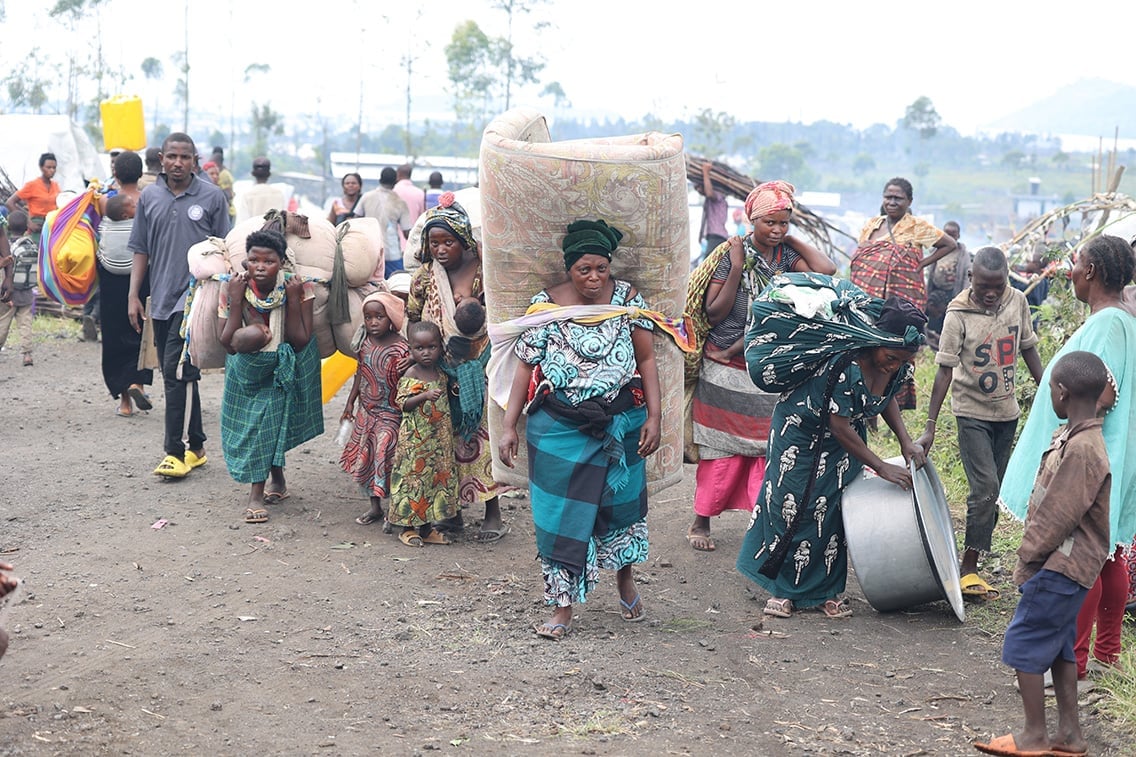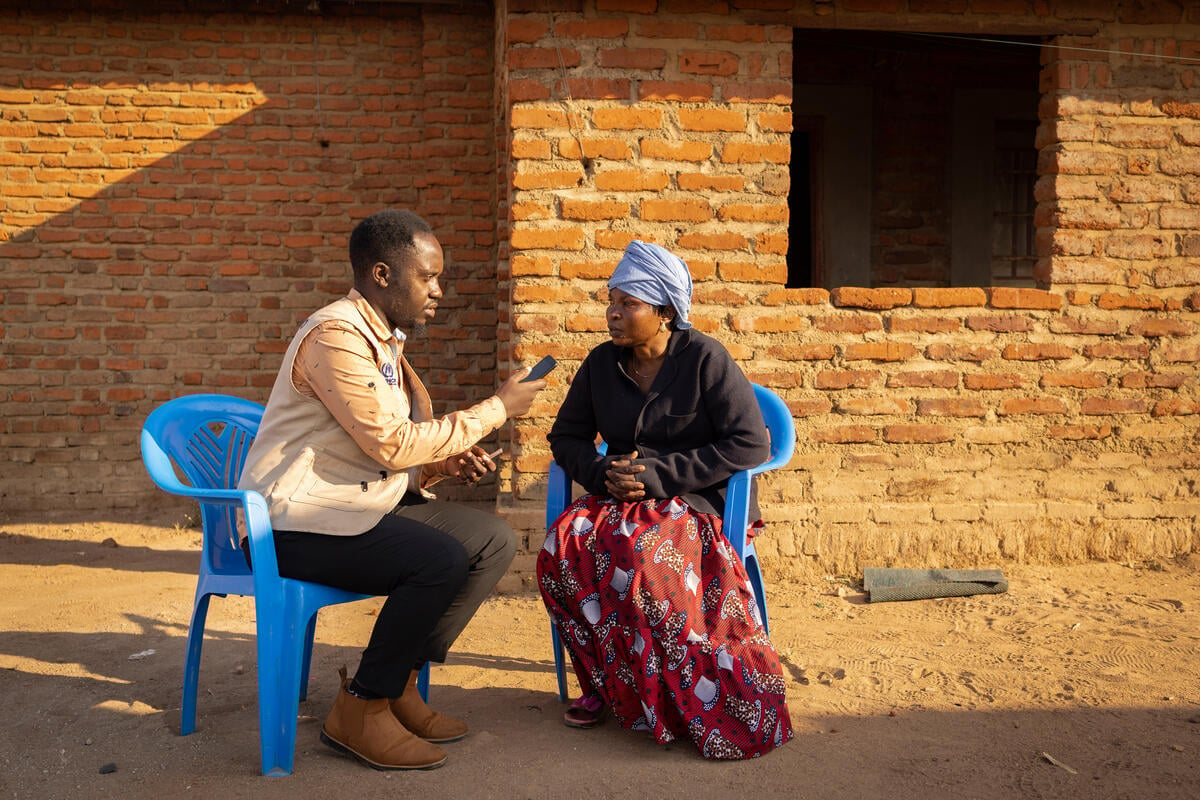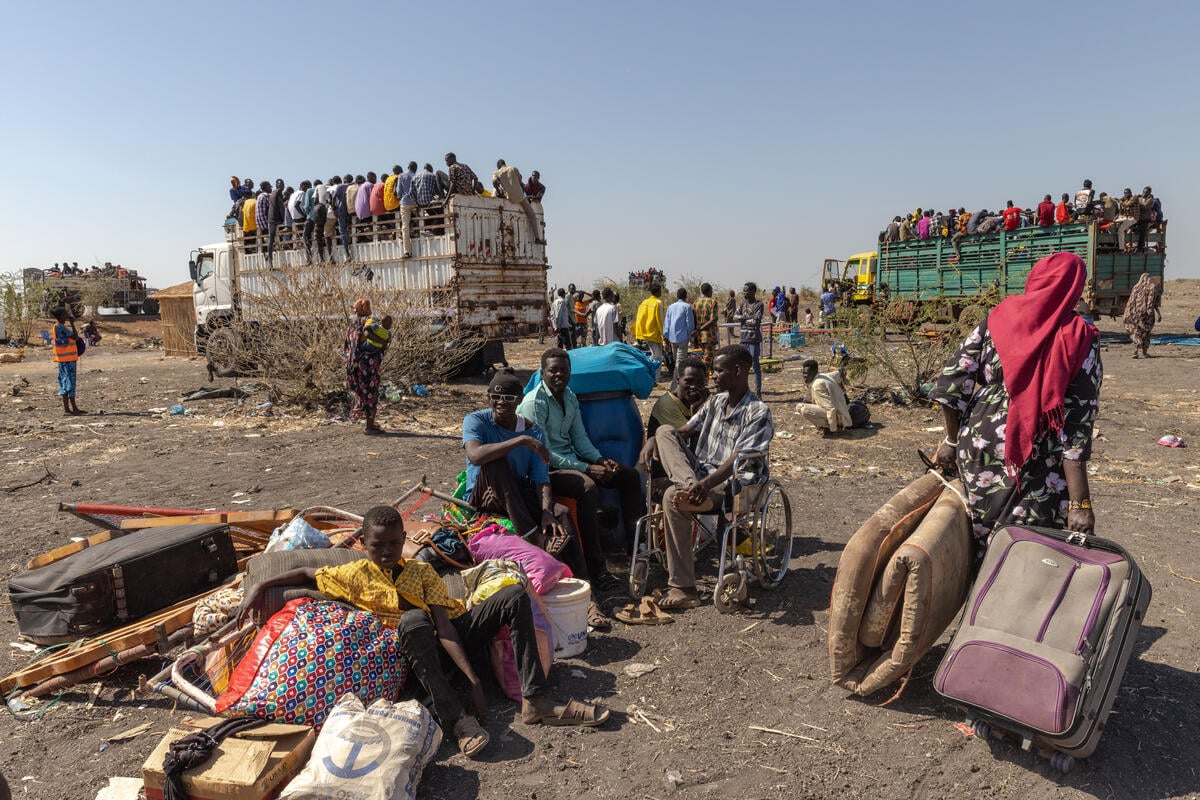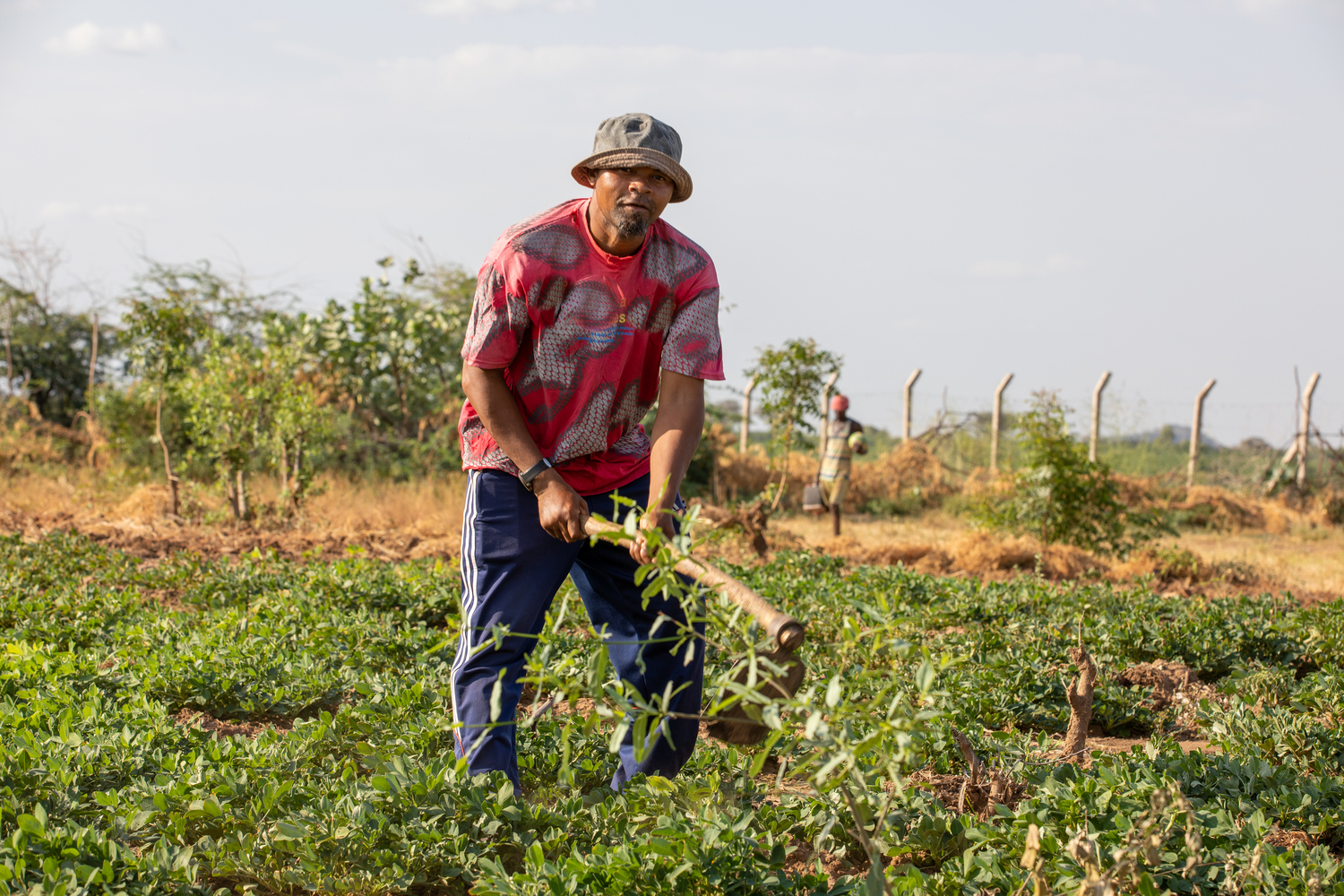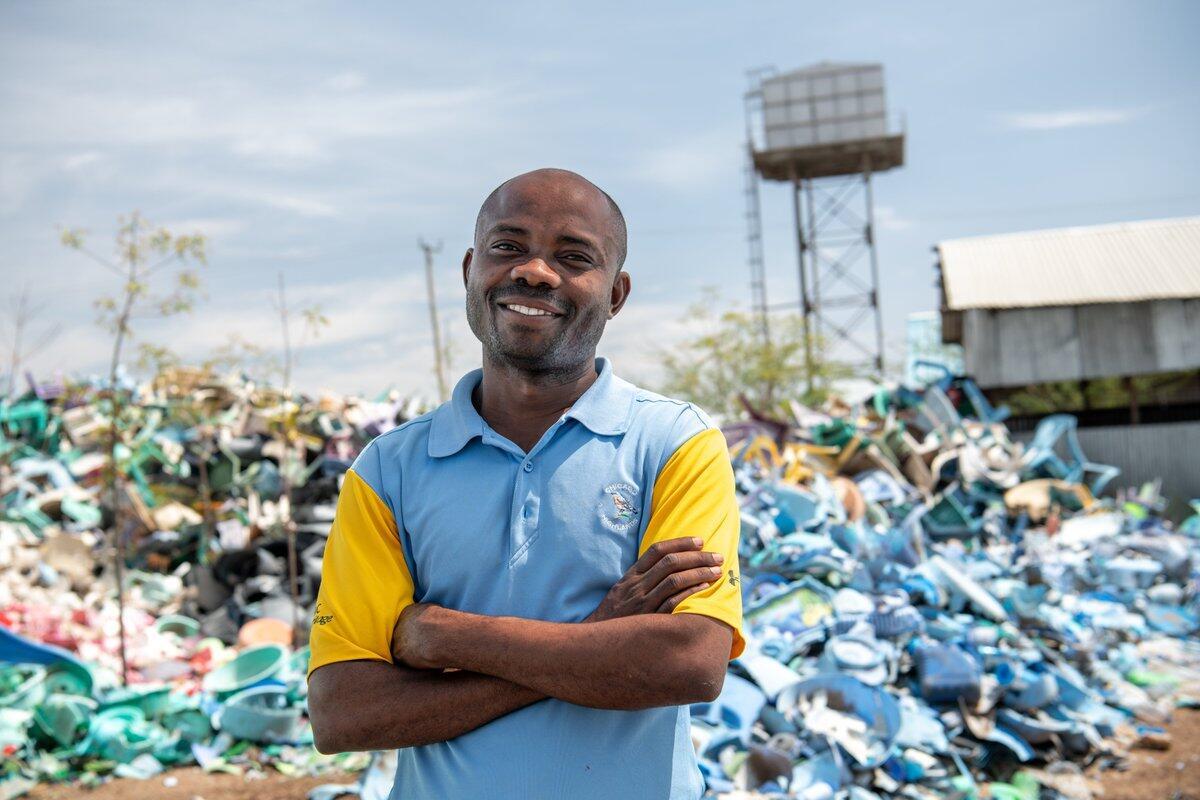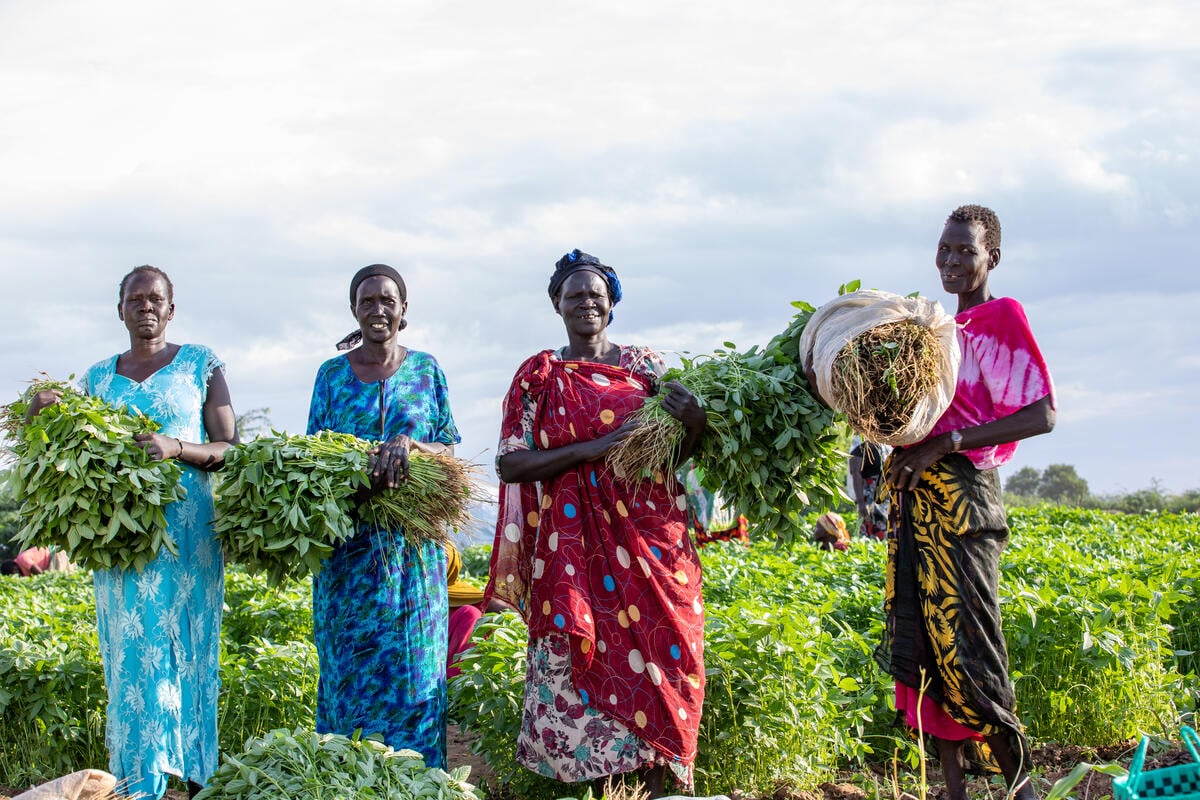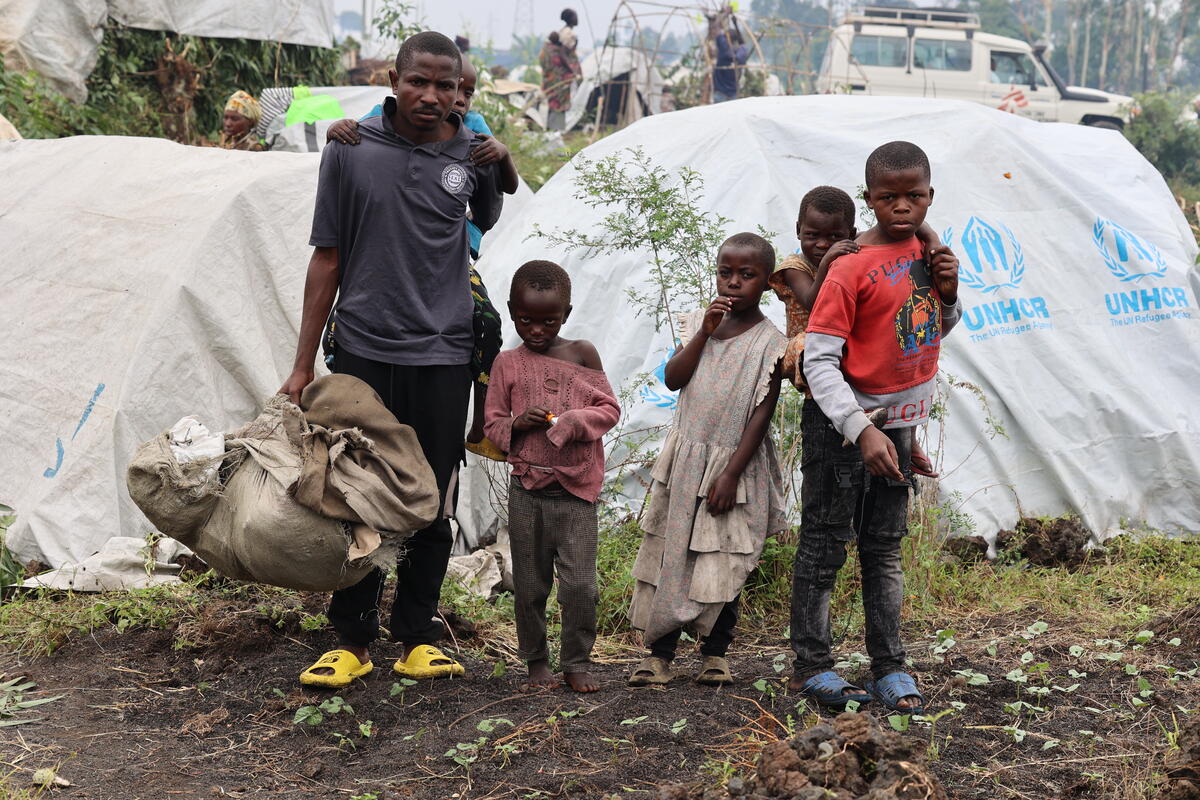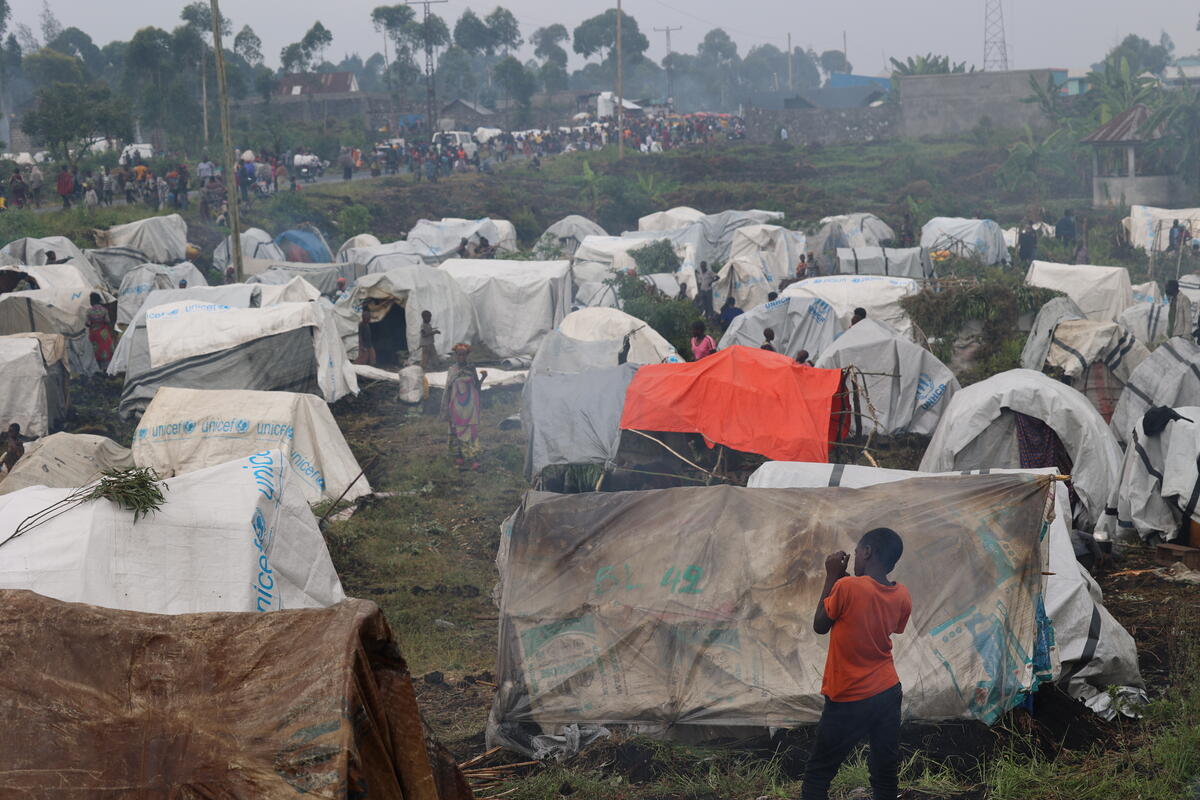UNHCR helps young Congolese albino on the run from witchcraft
UNHCR helps young Congolese albino on the run from witchcraft

BUJUMBURA, Burundi, October 14 (UNHCR) - Anaclet smiles and looks lovingly at his young son, but the wind blowing off nearby Lake Tanganyika can't cool his feverish mind. He worries deeply about the safety of Jeff, who is different from most people.
Father and son are refugees from Democratic Republic of the Congo, but they haven't fled arbitrary violence or war like most of the hundreds of thousands of displaced people in the Great Lakes region. They are on the run because bad people want to kill six-year-old Jeff, so that they can harvest his organs for witchcraft.
"We are constantly moving from place to place, searching for a safe haven for our son," Anaclet told UNHCR at a transit centre opened earlier this year in the Kajaga area of the Burundi capital, Bujumbura. The refugee agency has been providing protection for him and his family while a solution is worked on.
The problem is that Jeff is an albino, and this makes him a target in a region where literacy rates are low and ignorance feeds dangerous superstitions. In Burundi, the Democratic Republic of the Congo (DRC) and Tanzania, people living with albinism are sometimes hunted like wild animals or attacked by people who believe that their body parts have supernatural powers and bring protection, luck or wealth.
Concerned by the phenomenon, UNHCR and local group Albinos Sans Frontières have launched a campaign in Burundi to raise awareness among refugees and locals about this disorder, which is characterized by a dramatic lack of pigmentation. The partners also help victims like Jeff.
The boy's pale, sensitive skin and red eyes make him stand out in sub-Saharan Africa, but until recently he had led a relatively peaceful life with his parents and four siblings in the lakeside city of Uvira in DRC's South Kivu province.
But this all changed when he was five years old. A member of a Mai Mai militia group broke into the family home when everyone was asleep, knocked Jeff unconscious and stuffed the boy into a bag. Anaclet woke and, with the help of his neighbours, beat off the intruder and grabbed back the bag and his son.
Some of the Mai Mai groups in the region believe in the supernatural and witchcraft, which they claim can make them invincible or protect them in other ways on the battlefield. They use the body parts of people living with albinism to mislead enemies.
After this attack, which left Jeff too terrified to speak for several days, the family were told by the Mai Mai to either surrender Jeff or pay them US$10,000 to go away. If they failed to respond, they would all be killed. "I could not give away my blood, because my child is my blood. That is why I chose to move to Goma [in June last year], where a relative agreed to host my family," said Anaclet, referring to the capital of neighbouring North Kivu province.
But two months later they had to flee back to South Kivu, this time to escape fighting between the Congolese government and members of the rebel M23 movement in the Goma area. They stayed with an Anglican pastor in Bukavu, but he asked them to leave after a few days because he feared Jeff's presence was putting his family at risk. He collected money from his congregation and gave it to the family.
They decided to flee to neighbouring Burundi, ending up in the Kamenge district of the capital, Bujumbura in August 2012. "My husband resumed work as a plumber and I started selling ndagala [small fish] in the market," recalled Solange, Jeff's mother. But their ordeal was not over. "On August 6 this year, someone threw a grenade at the house and shattered our peace," she added.
They then sought help from the government's National Commission for the Protection for Refugee and Stateless People and from UNHCR, which has provided protection, shelter and assistance while a permanent solution is sought.
Catherine Huck, UNHCR's representative in Burundi, said the partnership with Albinos Sans Frontières was also important for helping people like Jeff. "We hope the partnership will contribute to a greater respect of the rights of people living with albinism," she stressed, adding that the two would continue to work together.
"Governments in countries where misguided witchcraft-related beliefs still prevail should take appropriate measures to ensure the respect, promotion and protection of the rights of people living with albinism," Huck said, singling out the right to education for children like Jeff."
The Burundian government has responded in recent years to the problem by arresting and prosecuting those suspected of abducting and killing albinos, while gathering people living with albinism in locations protected by the police. But more needs to be done.
Meanwhile, in the Kajaga transit centre, Jeff is pensive, attentive and alert. His elder sister Justine, aged 10, is protective and stays near him all the time. "I don't want him to suffer," she said shyly, and Jeff nodded with a smile, distracted for a moment from the hot sun that makes him itch.
"All we need is the protection of our child from witch doctors and rebel groups," said Solange. "We are really worried."
By Bernard Ntwari in Bujumbura, Burundi


